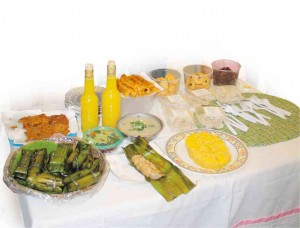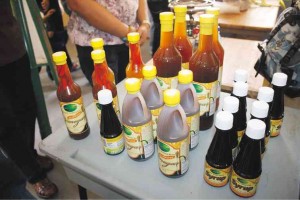Cabiao, Candaba set to grow sweet sorghum for food, fuel
CANDABA, Pampanga, Philippines—Test farming of sweet sorghum in the last six years showed crop production in the Philippines to be 50 percent higher than in India, increasing the crop’s potential as a source of food, fodder and fuel in local communities, according to a top crop scientist.
Dr. Belum Reddy, principal scientist of the International Crops Research Institute for the Semi-Arid Tropics (Icrisat), said research done through linkages with universities and colleges in Ilocos Norte, Central Luzon and South Cotabato showed that sweet sorghum can be “planted throughout the year in major islands of the Philippines.”
It can also be grown during the rainy months, he said.
Icrisat, a nongovernment and nonpolitical institution based in India, promotes the cultivation of sweet sorghum for various uses. The institution is headed by Dr. William Dar, former secretary of the Department of Agriculture.
In the Philippines, Icrisat works in communities through local governments and national agencies, like the Department of Science and Technology.
The DOST has helped some villages produce vinegar, sweet syrup, juice, bread and snacks from sweet sorghum.
“The grain is food for people, fodder for animals, the stalks for ethanol fuel and the bagasse for biocompost,” Reddy said in a presentation made for Mayor Gloria Congco of Cabiao, Nueva Ecija, and Mayor Jerry Pelayo of Candaba, Pampanga.
The towns are neighbors, both within the 32,000-hectare Candaba Swamp.
“Food security is number one [priority]. Food security must not be sacrificed,” Reddy told the Inquirer.
Congco said the Cabiao government started growing sweet sorghum last year, initially using 10 hectares.
“While the yield showed to be good, we don’t have the equipment to process the crop. Also, our farmers need marketing support. That’s where the partnership must focus on,” she said.
Pelayo said that he wants sweet sorghum to be cultivated after rice is harvested. This means a window of three months for farmers wanting to fully utilize their lands.
Growing sweet sorghum takes three months while planting and harvesting sugarcane, a major source of ethanol, lasts 10 to 11 months.
Agricultural lands in Cabiao span around 7,000 hectares while Candaba has almost 18,000 hectares.
Reddy said trial productions indicated that ethanol production from sweet sorghum is “cost-effective,” with a ton producing 40 liters of biofuel.
He said the crop has high water use efficiency. It can be propagated through seeds and the hybrid technology for it is in place.
Among the five varieties being tested locally, SPV422 showed good results, Reddy said.
“[The production of sweet sorghum] ensures both food and energy security and clean environment,” Reddy said. “This is a win-win situation for farms and industry.”
Candaba has set aside two rooms at the Miss Earth Park’s training center for an extension campus of the Pampanga Agricultural College, through which Icrisat will assist local farmers.
Also last week, Icrisat met with officials of the First Philippines Sweet Sorghum Corp. (FPSSC), a consortium of companies Pemdas Energy, Bapamin Enterprises and Full Advantage.
Pemdas Energy, chaired by Patrick Pelayo, the mayor’s son, has been growing sweet sorghum in the last three years in parts of Central Luzon.
With low crop production, Pemdas churns out 700 liters of ethanol daily through a distillery. “The bottleneck is in the harvest,” the younger Pelayo said.
The lack of equipment for biofuel production makes the Philippines still dependent on imported ethanol, mostly from Brazil, he said.
This happened although the Philippines has enacted the Biofuels Act of 2006 (Republic Act 9367) and the government has mandated the blending of ethanol with gasoline, he said.
Reddy said Icrisat is ready to work with the consortium in terms of seed production and establishment of demonstration farms.
FPSSC estimates that investments may cost $1,000 (P43,250) per hectare.
















